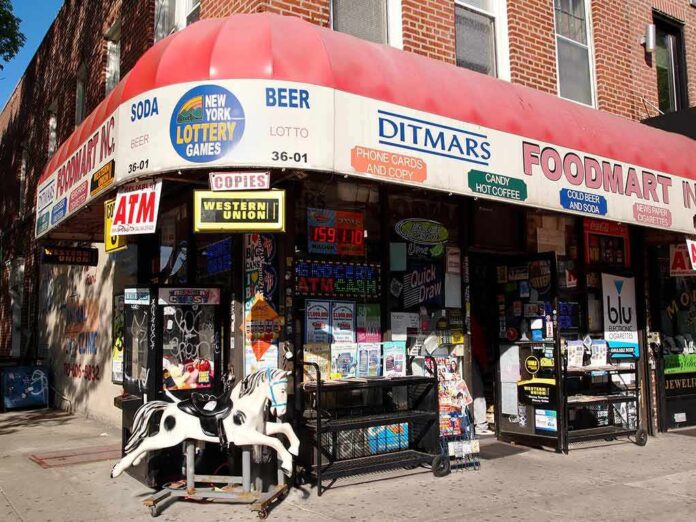The real consequence of drinking beer every day isn’t just measured in calories or hangovers—it’s in the subtle, creeping shift in your body’s health profile, where the line between benefit and harm grows fuzzier the older you get.
Story Snapshot
- Even a single daily beer can nudge your blood pressure up, undermining long-held beliefs about “safe” drinking.
- Moderate beer intake might help older adults’ hearts and bones, but daily habits increase the risk for cancer, hypertension, and early mortality.
- The much-touted “J-shaped curve” of alcohol benefits is under attack by new science, especially for anyone under 40.
- Guidelines are tightening, the beer industry is on the defensive, and the definition of “moderation” is being rewritten.
Why the Science on Daily Beer Keeps Changing
Medical journals only started untangling beer’s effects from other alcohols in the 1970s, but the debate about daily drinking has never been fiercer than it is right now. Decades of research produced the “J-shaped curve”—the seductive idea that a little beer protects your heart, while a lot will sink it. Yet new data from 2021 onward has begun to tear down that curve, showing that daily beer, even in modest doses, can subtly but steadily raise blood pressure in men and women of any age. This isn’t just a statistical quirk; it’s a call to reconsider the casual after-work pint as a health risk in disguise.
For older adults, the calculus is trickier. Some clinical studies confirm that a daily beer can bolster bone mineral density and even lower diabetes risk in men. But the same studies warn that these perks are dose-dependent and quickly erased if you cross from “moderate” (about one beer a day) to “excessive” (more than two). The catch? Most people who drink daily underestimate their consumption or ignore creeping tolerance, blurring the line between help and harm.
The New Risks: Blood Pressure and Beyond
Large-scale reviews published in 2023 hammered home a simple but unsettling point: no amount of daily beer is truly safe for your heart or your cancer risk. The newest blood pressure studies, including one led by Tulane University, found that just one beer a day can raise systolic pressure enough to matter for long-term cardiovascular health. These findings hit especially hard for those who once viewed beer as the “healthier” alcohol, as there’s now little difference when it comes to hypertension or cancer risk. Updated guidelines in the U.S. and Europe reflect this new caution, slashing recommended daily limits and warning consumers not to treat moderate beer as a free pass.
Men and women experience these risks differently, but neither group escapes unscathed. Men get a modest reduction in diabetes risk at low doses; women’s cancer risk rises faster, even at moderate intake. Older adults, often the only group to see brief benefit, now face the paradox: the very beer that might help their heart could still quietly hike their blood pressure, undermining the gain.
The Social and Economic Fallout
Public health agencies and beer industry lobbyists now wage a subtle war for public opinion. Beer remains the most widely consumed alcoholic beverage worldwide, woven into social rituals and local economies. Yet as the science shifts, so do regulations: advertising restrictions tighten, and the definition of “moderate” is redefined lower almost every year. Healthcare costs rise as more people experience hypertension, metabolic syndrome, and alcohol-related cancers. Meanwhile, social normalization of “one beer a day” is increasingly challenged by campaigns warning that even small daily doses add up.
The beer industry, desperate to preserve its image, highlights antioxidants and polyphenols, claiming heart benefits for moderate drinkers. However, meta-analyses and Mendelian randomization studies suggest these effects are dwarfed by the cumulative risks, especially for younger adults and those with pre-existing conditions. The J-shaped curve—the last bastion of “safe” drinking—is now recognized as conditional and controversial.
Expert Consensus: A Moving Target
Medical researchers, public health leaders, and academic experts now agree on one point: moderation is not what it used to be. The most reliable studies, using massive cohorts and genetic tools, show that any daily drinking raises the risk for hypertension and cancer, regardless of age or gender. Benefits to cardiovascular health or diabetes prevention are limited to very low doses and older populations, and even then, the margin is razor-thin. The American Heart Association and World Health Organization now advise that the safest level of daily beer is none—though for those over 40, the decision is nuanced and personal, not a universal prescription.
What Happens to Your Body When You Drink Beer Every Day
— BrewGene (@BrewGene) September 29, 2025
Contradictions remain, especially over what “moderate” means in real life versus clinical trials. But for the reader who’s long believed in the virtue of their nightly beer, the evidence is now stacked toward caution. The most provocative science suggests that the healthiest path may be to drink less often—or perhaps not at all.
Sources:
Tulane University Blood Pressure Study
Stanford Medicine: Alcohol Consumption and Your Health











